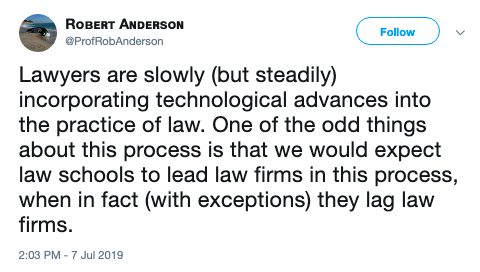Most people go to law school with the intention of practicing law. This most often means getting a job in a law firm, government agency, or other organization that requires the skills and training (and ultimately the licensure) that law school provides.
So why don’t we treat law students like the professionals they are? Law school is a professional school. We are training professionals.
For the most part, traditional legal pedagogy imparts few “soft” professional skills. A few courses may, here and there, and of course, clinics generally do. But access to these opportunities is very limited.
Many law students exit law school with NO experience working in a collaborative way. Few have been exposed to best practices in professionalism. Most are treated like . . . students. Not as professionals. The difference is distinct.
We’re not training students. We are training lawyers. How do we do this? It should include at least some exposure to professional skills and the opportunity to practice them, beyond an ethics course.
(Not that I think most ethics courses impart professional skills, but I expect someone to point to ethics in the curriculum and say, “But we do!” No. We do not.)
We can keep the Socratic method. AND we can do more, and do better, to prepare students for the real world of lawyering*.
*Or whatever they go do, because the skills we teach in law school transect roles and industries.
-CM




